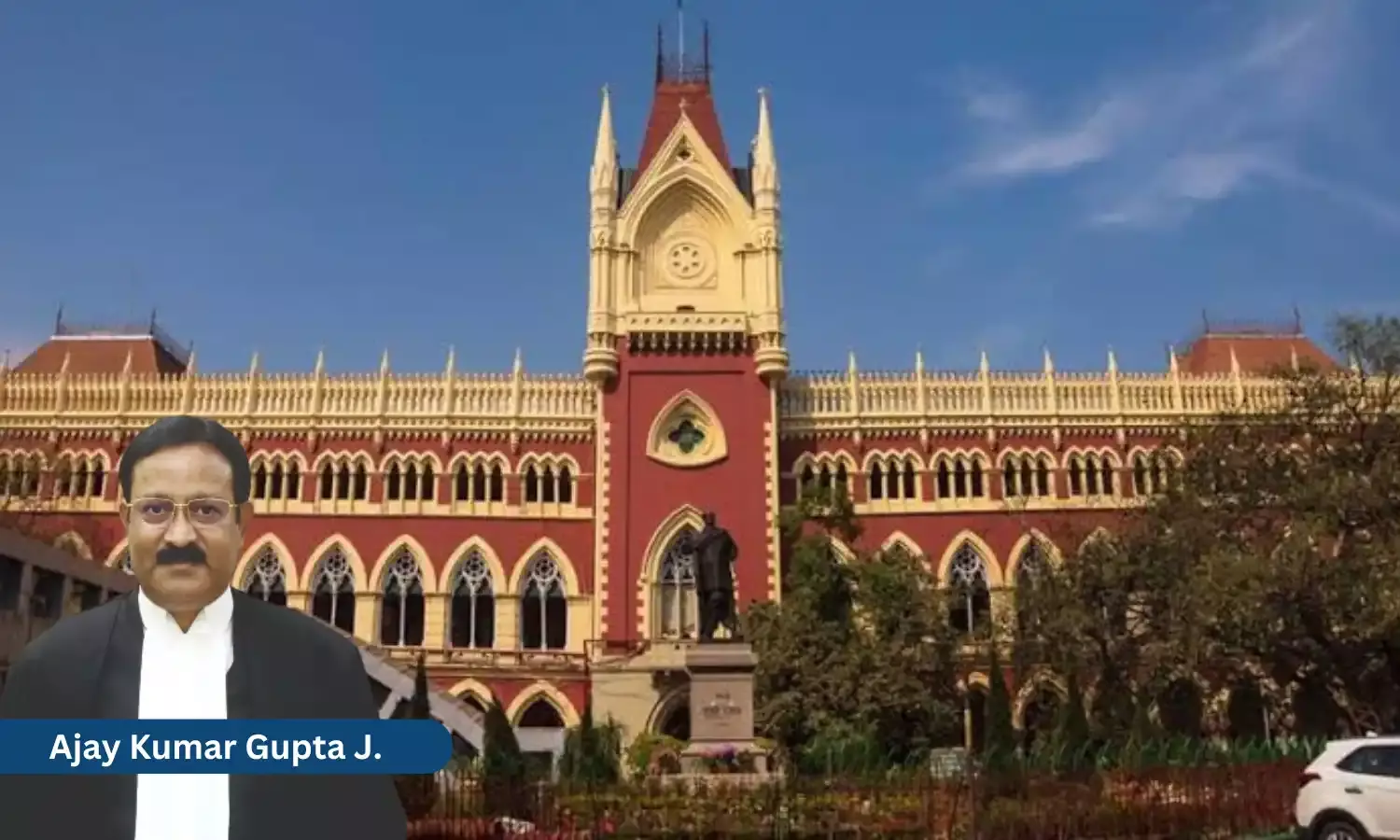Trial Necessary To Uncover Truth: Calcutta High Court Refuses To Quash Case Against Former VC Of Visva Bharati University Under SC/ST Act
The Calcutta High Court held that the Central Conference Hall of the University within the four walls of the building of the University is considered to be a public place because it was/is a venue for conferences and owned by the Government.

The Calcutta High Court has refused to quash a case against the former Vice-Chancellor of Visva Bharati University who was accused of disallowing SC, ST or OBC Categories Officers to enter inside his office chamber.
A Criminal Revisional Application was filed before the Court, seeking to quash the proceedings under Section 500 of the Indian Penal Code, 1860 (IPC) read with Sections 3(1)(r)(u)(p)(s) of the Scheduled Castes & Scheduled Tribes (Prevention of Atrocities) Act, 1989 (SC/ST Act).
A Single Bench of Justice Ajay Kumar Gupta observed, “Utterance a person’s belonging SC, ST or OBC Categories officers would not be allowed inside his office chamber and those categories officers would not make any mobile call to him from the date of meeting in the Central Conference Hall by the petitioner no. 1 being administrative and academic head in presence of other Registrars and other officers really prima facie constitute offence under Section 3(1)(r)(p)(s) of the Scheduled Castes and Scheduled Tribes (POA) Act, 1989 therefore, petitioners are requiring to face the trial. Trial is necessary to uncover the truth.”
The Bench held that the Central Conference Hall of the University within the four walls of the building of the University is considered to be a public place because it was/is a venue for conferences and owned by the Government.
Senior Advocate Rajdeep Mazumder represented the Petitioners while Advocates Subhamoy Bhattacharya and Ranabir Roy Chowdhury represented the Opposite Parties.
Facts of the Case
The Petitioners were the former VC of the University, in-charge of Public Relation Officer as well as an Associate Professor, and the Deputy Registrar, respectively. In 2023, an Application for the higher post of Controller of Examination at the Central University of Odisha was forwarded by the Visva Bharati with a no-objection letter. The Opposite Party was selected for the said post and then submitted a release request to the Registrar. However, he received no response despite several reminders.
The Registrar issued letters containing allegations which were refuted by the Opposite Party. It was alleged that the said letters were retaliatory, based on discriminatory and malicious intent against SC/ST communities as the Opposite Party belonged to the same. Thereafter, a Complaint was filed with the National Commission for Scheduled Castes regarding the alleged discrimination and harassment by the University’s administration. Based on a written complaint, a case was registered against the Petitioners. Hence, the Petitioners were before the High Court.
Reasoning
The High Court in the above regard, noted, “In the said meeting, the petitioner no. 1 abused opposite party no. 2 and further made a statement that officers from SC, ST or OBC Categories would not be allowed to enter inside his office chamber and those categories officers would not make any mobile call to him from the date of meeting though member of SC, ST or OBC categories are the employees of the said university. This statement was directly specified to the opposite party no. 2. At the time of utterance, other officers of the university were very much present as public witness or hear the utterance made by the accused to the victim.”
The Court said that if the alleged offence takes place in the Central Conference Hall of the University, then it can be said that it has taken place in public place within the view of public.
“Therefore, such utterance prima facie constitutes an offence under Section 3(1)(r)(p)(s) of the Scheduled Castes and Scheduled Tribes (POA) Act, 1989. Intention of the accused persons are also prima facie established to humiliate or insult by asking SC, ST or OBC Categories officers would not be allowed to enter inside office chamber and those categories officers would not make any mobile call to petitioner no. 1 from the date of meeting. Such restrictions based on specific caste identity, and the act takes place in a public view”, it added.
The Court further took note of the fact that earlier also a complaint was made against the Petitioner but the case was quashed by the Single Bench. It observed that the power of the High Court under Section 482 of CrPC is wide to protect and secure the ends of justice and also to prevent from abuse of process of law but here the Petitioners failed to establish their case in positive.
“At this stage, this Court cannot embark upon a roving trial as to the reliability, genuineness or otherwise correctness of the allegations made in the FIR and materials collected during the investigation by the investigating officer. Hence, the application has devoid of merits”, it concluded.
Accordingly, the High Court dismissed the Revisional Application.
Cause Title- Professor Bidyut Chakraborty and Ors. v. The State of West Bengal & Anr. (Case Number: C.R.R. 2599 of 2023)
Appearance:
Petitioners: Senior Advocate Rajdeep Mazumder, Advocates Moyukh Mukherjee, Pritam Roy, Sagnika Banerjee, and Aishwarya Bazaz.
Opposite Parties: Advocates Subhamoy Bhattacharya, Ranabir Roy Chowdhury, Shankar Mukherjee, and Sandip Chakraborty.


